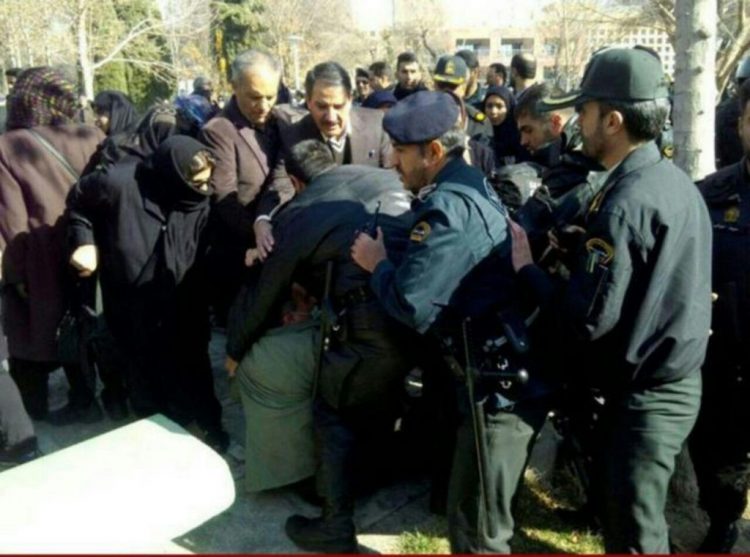Peaceful Teachers Protesting Heavy Sentence Against Mohammad Habibi Met With Tear Gas, Arrestsتشدید سرکوب معلمان: تایید حکم ۱۰ سال زندان محمد حبیبی، پرتاب گاز اشکآور و بازداشت معترضان در اصفهان

DECEMBER
28, 2018
Teachers who were
peacefully protesting a fellow colleague’s heavy prison
sentence were met with tear gas by
anti-riot units who made “several arrests” in the Iranian city of Isfahan on
December 27, 2018, a trade unionist told the Center for Human Rights in Iran
(CHRI).
On December 24, Iran’s
Appeals Court upheld a conviction against Mohammad Habibi, a member of the Iranian Teachers’
Trade Association (ITTA) who in August 2018 had been sentenced by a Revolutionary Court in Tehran to
10.5 years in prison, of which he would have to serve at least 7.5 years.
He was also sentenced to
74 lashes as well as two years abstinence from political and social activities
and prohibited from leaving the country for two years.
Habibi was convicted of
“assembly and collusion against national security,” “propaganda against the
state” and “disturbing public order.”
“Naturally, we expected
the Appeals Court to look into this case more carefully because the sentence
had been handed down on the basis of peaceful trade union activities,” Habibi’s
lawyer, Hossein Taj, told CHRI on December 27.
“In any case, we don’t
believe this verdict is fair and therefore will take our objection to the
Supreme Court.”
Iran is a signatory to
the International Covenant on Civil and Political Rights,
which mandates in Articles 21 and 22 freedom of association and
guarantees the right to form trade unions, and to the International Covenant on Economic, Social and Cultural Rights,
which guarantees in Article 8 the right of workers to form or join trade unions
and protects the right of workers to strike.
According to Article 27 of
Iran’s Constitution, “Public gatherings and marches may be
freely held, provided arms are not carried and that they are not detrimental to
the fundamental principles of Islam.”
But peaceful labor
activism in Iran is nevertheless treated as a national security offense;
independent labor unions are not allowed to function, strikers
are often fired and risk arrest, and labor leaders are consistently prosecuted under catchall national security
charges and sentenced to long prison terms.
A formerly imprisoned
teachers’ rights activist told CHRI that a group of active and retired teachers
had gathered in front of the Education Ministry’s office in Isfahan to protest
the persecution of their colleagues and demand higher pay and insurance
benefits.
“Minutes after the
teachers gathered together on December 27, anti-riot units and policemen on
motorcycles attacked and released tear gas, creating a lot of problems for the
participants because many of them were elderly retired teachers,” said the
source who requested anonymity for security reasons. “In the end, several
teachers were also arrested and taken away.”
“What this attack means is
that the police are not tolerating any protests,” the source added.
No comments:
Post a Comment